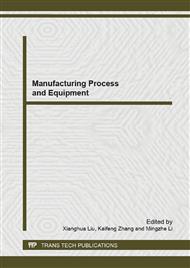p.2685
p.2691
p.2695
p.2699
p.2704
p.2710
p.2715
p.2721
p.2725
Multi-Objective Optimization Study of Energy Management Strategy for Extended-Range Electric Vehicle
Abstract:
A new method based on genetic-particle swarm hybrid algorithm was presented for parameter optimization of energy management strategy for extended-range electric vehicle (E-REV). Taking a logic threshold control strategy of an E-REV as example, for the aims of minimizing fuel consumption and emissions, a constrained nonlinear programming parameter optimization model was established. Based on this model, genetic algorithm (GA) and particle swarm optimization (PSO) were improved respectively. Further, a genetic-particle swarm hybrid algorithm was put forward and applied to the multi-objective optimization of E-REV energy management strategy. Optimization results show that the hybrid optimization algorithm can avoid falling into local optimum and its search ability is much better than improved adaptive genetic algorithm (IAGA). This hybrid algorithm is also suitable for the control parameters optimization issues of other types of hybrid electric vehicles.
Info:
Periodical:
Pages:
2704-2709
Citation:
Online since:
May 2013
Authors:
Price:
Сopyright:
© 2013 Trans Tech Publications Ltd. All Rights Reserved
Share:
Citation:


